Reduce Risk with Thorough Executive Reference Checks
White Paper | Written by Stephen Wood
Four tips for increasing placement success.
Almost without exception, checking a senior executive’s references is a critical component of a successful placement. Sometimes, however, due to overfamiliarity with a candidate — such as one introduced to the organization through a Board Director or a member of the search committee — the process of thorough referencing can fall by the wayside.
The risk of such an omission is substantial: Hiring a candidate whose actual record of performance is later revealed through digital media or professional networks can cause not only embarrassment to the hiring company but also real damage if the executive fails to perform or “fit” into the new culture. And both can impact shareholder value.
Mitigating such a risk is straightforward. Whether using a search firm to manage referencing through the search process or conducting your own references, keep in mind these tips for achieving successful executive level referencing:
- Involve the hiring authority in the referencing process. It’s human nature that once a candidate is deemed “the one” and has been tacitly endorsed by someone from a sufficient power base, the search committee can be tempted, emotionally if subconsciously, to expedite the candidate across the finish line. Yet seeking more indepth evidence could yield insights about the candidate’s work behavior that may derail his or her performance down the road, and with far broader consequences to the team, department and company. For this reason, designate someone on the selection committee who is invested but can be unbiased to manage the referencing process. Insist that a comprehensive process be followed, including time for the hiring authority to make personal calls to selected references for a spot-check and opportunity to ask “fit” questions.
- Schedule reference calls. Those offering references for your candidate are generally busy and simply cannot easily drop everything to conduct a deep and thorough reference. A good reference conversation takes a minimum of 30 to 45 minutes and can’t be rushed, so suggest that the candidate alert references in advance to expect your call and then make an appointment so that time is set aside for a thoughtful conversation.
- Organize the process. When preparing for reference checks, review the profile to highlight specific characteristics and challenges that the executive will need to embody or will face on the job. Before beginning the calls, formulate four or five subheadings based on the job specifications and be clear about what you need to learn from each reference based on his or her unique understanding of the candidate. During each conversation, first assure the reference that your discussion is confidential and intended for use only with the search committee — his or her comments will not be shared with the candidate directly.
- Remain alert to red flags. Most people are uncomfortable asking strangers — who, in some cases, are highly public Directors or senior executives — hard questions that may uncover unflattering facts. There may even be discomfort probing more deeply when the reference offers a hint of a problem. Too frequently, reference interviewers let red flags fly by, not taking the time to follow up and dig in to understand what really happened. For example, “Oh, he had some issues with his peers, but it never impacted his overall performance.” That’s a bright red flag that needs further exploring, but all too often the reference interviewer will simply move on to the next question, leaving behind what may be very important information that could shed light on how this candidate will behave once on the job.
The architecture of a solid reference includes questions that create context and open-ended queries that provide plenty of “white space” to listen for what is being said and, more importantly, what is not being said. Helpful to this process are some the following kinds of questions:
- Remind me of the relationship you had/have with (candidate).
- When you think of (candidate), how would you characterize him/her overall?
- How would you characterize him/her as a leader?
- How would you describe his/her ability to manage up, down and across the organization?
- How would (candidate’s) team describe him/her?
- Describe his/her strategic capability.
- Describe his/her ability to be tactical without micro-managing.
- What is his/her track record of performance in (the top three to five skills required for this position)? What was he/she able to accomplish?
- Describe a time when he/she was responsible for growth (change, turnaround, etc.)
- How does he/she react under pressure?
- Where are his/her areas of development?
- Based on his/her career progression to date, his/her next move would be (fill in appropriate level). What will he/she need to do to develop to that level?
- What counsel would you give the Board or the CEO of the company to create a meaningful environment for (candidate) to flourish and contribute at his/her maximum capacity?
- What have I not asked you that I should?
- Any additional insight or comments to add?
Of course, rare is the “perfect” candidate, and rarely are candidates disqualified solely based on those references. But a well-conducted series of references can offer a far clearer view of the candidate, and especially where one may need to mentor the candidate to ensure his/her success. Given the time, resources and potential risk of a placement, attention to the referencing process has a tremendous return on investment.
Stephen Wood is the Managing Director of Centerstone Executive Search & Consulting’s Charleston, South Carolina office and member of the Executive Search Practice. For your executive search needs, contact Stephen at [email protected] or at 425-836-8445.



